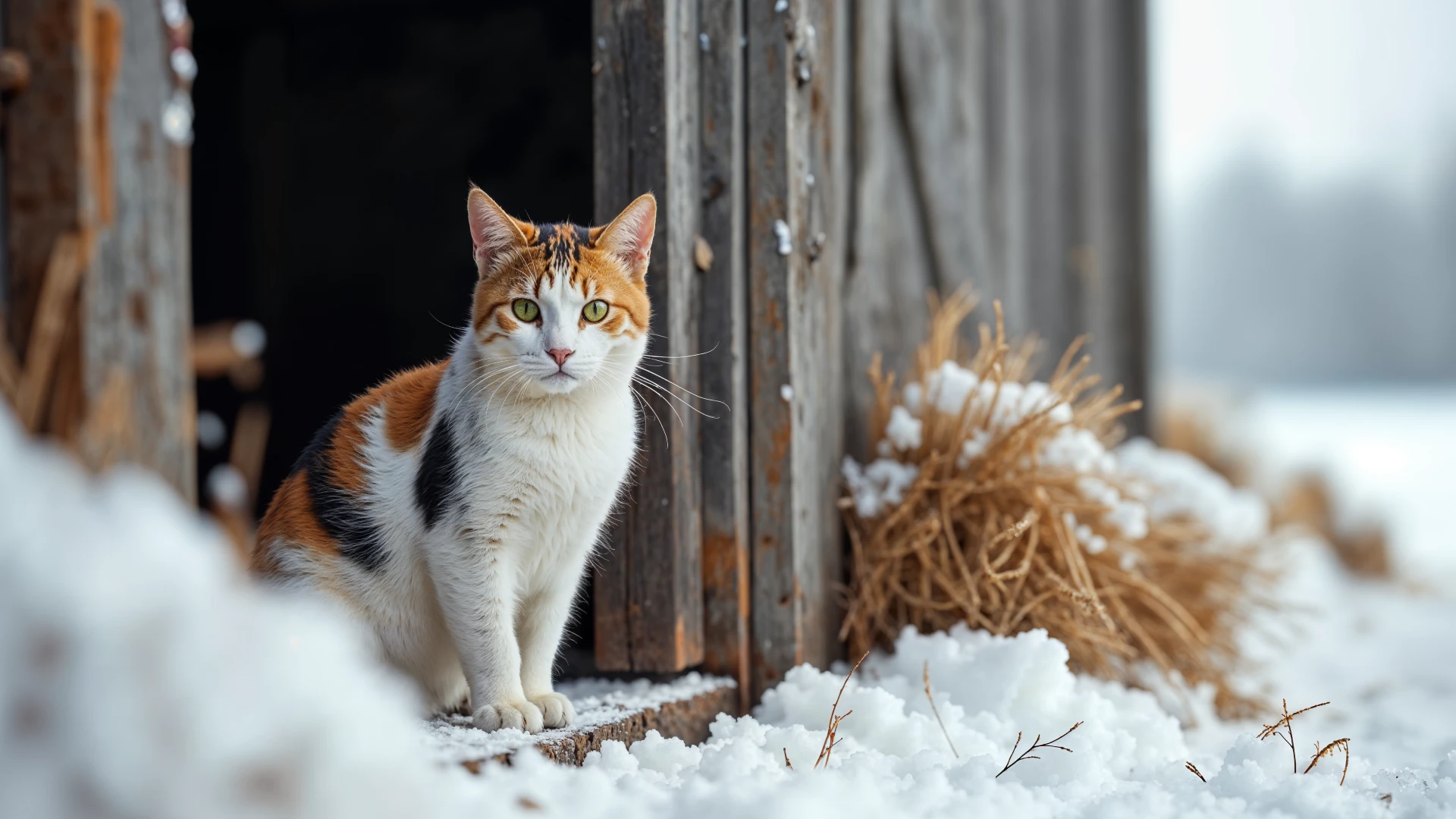
How to take care of my cat in cold weather?
In cold weather, you should take extra care of your cat because cold weather can affect their health. Cats have difficulty acclimatizing to extreme cold or heat, which is suitable for temperate climates.
Extra cold weather lowers a cat’s immune system, and as a result, they may suffer from various diseases.
That’s why you need to take care of some aspects to care for your cat. Here are some topics:
What to feed the cat: Cats need to be fed enough healthy food in cold weather. Cats eat 15% more food in winter than in other seasons.
They need to be fed extra food so they can maintain their body temperature. That’s why you should feed your cat a little more.
PROTEIN: Cats should be fed protein foods in cold weather. Protein helps them maintain their energy, muscle mass, and overall health.
You can feed your cat the following foods to ensure they get enough protein:
- Chicken
- Fish
- Eggs
- Beef
- Lamb
- Turkey
- Rabbit
When giving meat, be careful not to feed raw or spoiled meat as it can make them sick.
WATER: You should also feed your cats water regularly. Not getting enough water can cause dehydration in your cat. Cats should be fed enough water in all seasons.
But in winter, you need to be extra careful about your cat’s water intake. Cats generally do not want to drink water in cold weather. That’s why you can make the food you give your cat a little wet.
How to keep a cat warm in winter: It’s necessary to keep your cats warm in cold weather because they can get sick from the cold. That’s why you need to keep your cat warm. Some important points are discussed below:
- Keep them inside: The best way to protect cats from cold weather is to keep them indoors. Walking outside in cold air increases the chances of a cat catching a cold. That’s why you need to make sure your cat doesn’t roam outside in the cold air.
- Provide a warm bed and use a blanket: A bed should be provided for cats to keep them warm. You can put a blanket on that bed. The blanket will help keep the cat warm.
The cat’s bed should be kept in a place where cold air does not circulate.
- Provide an indoor litter box: You can use an indoor cat litter box to keep your cat indoors. Some cats occasionally go outside to pee or poop. You can let your cat use the litter box indoors so that it doesn’t have to pee or poop outside in the cold air.
- Use an electric space heater: If the weather is extra cold, you can use an electric space heater. That will help keep the climate in your room warm and your cat comfortable.
The ideal temperature for a cat’s home is between 77–86°F (25–30°C). Cats can tolerate temperatures as low as 59–68°F (15–20°C), but temperatures above 100°F (38°C) are too hot for them.
- Keep them dry: Cats need to be kept dry to regulate their body temperature. If the cat’s body is wet for too long, it will not be able to regulate its body temperature, which can lead to various diseases.
That’s why you should keep your cat dry in cold weather.
- Entertain your cat indoors: You can play different games with cats to keep them indoors. Or you can buy them a variety of toys to play with at home.
Playing different games indoors with them will keep them physically and mentally healthy and safe from the cold weather outside.
- Provide proper food: Cats can keep their bodies warm if they eat enough food. Cats eat 15% more food in winter than in other seasons. That’s why you should give your cat a little more food.
Cat jackets: A jacket is very helpful in keeping the cat warm. Most cats do not like to wear clothes of any kind. If your cat can wear clothes, you can buy a jacket to keep your cat warm.
What diseases can cats get in cold weather?
A cat’s immune system decreases in cold weather, which can result in various problems in their body. You should take special care of your cat in cold weather.
Diseases that cats can get in cold weather include:
- Frostbite: Cats can get frostbite in the winter because their blood vessels constrict to conserve body temperature in cold temperatures, which can reduce blood flow to the extremities.
Frostbite can occur within minutes in very cold conditions or after long periods of exposure. Kittens and older cats are more susceptible to this disease.
Signs: discoloration, coldness, brittleness, and pain.
Affected parts: the paws, ears, and tail are most commonly affected by frostbite.
Treatment: Treatment involves thawing frozen tissue and amputating dead tissue.
To prevent: To prevent this disease, you should keep your cat indoors when it is very cold outside and try to keep your cat warm.
- Hypothermia: Hypothermia can be caused by exposure to cold air or water or by the body’s inability to generate enough heat.
Signs: Shivering, cool or pale extremities, slowed breathing and heart rate, lethargy or drowsiness, loss of coordination, heat-seeking behavior, blue or pale gums.
Treatment: You should move your cat to a warmer environment and seek the advice of a veterinarian as soon as possible.
- Cold and flu: Cats can get colds and the flu in winter.
Signs: Runny nose or discharge, coughing, fever, eye issues, loss of appetite, lack of energy, and difficulty breathing.
To prevent: Your cat should be vaccinated to prevent the flu. Kittens should receive their first dose of the cat flu vaccine at nine weeks of age, and their second dose three to four weeks later.
What to do: Avoid brushing and petting them, offer soft mushy foods, mix food with a little water, and place their litter box near their rest area.



